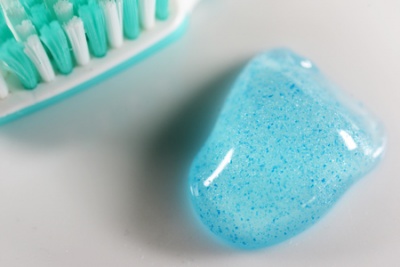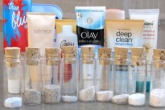Microbead ban comes into force across UK
An outright ban on the manufacture of cosmetic and personal care products containing microbeads has come into effect today (9 January).

Tiny pieces of plastic less than five millimetres wide, microbeads are often added to cosmetics and personal care products like face wash and toothpaste, either for superficial reasons or to act as exfoliants. The beads been shown to have a devastating effect on the marine environment, where they can find their way into the food chain after being mistaken for food by fish and crustaceans.
Recent research revealed that particles of plastic were discovered in the stomachs of creatures living in the deepest parts of the world’s oceans; these could be larger pieces of plastic which have degraded as well as microbeads, which wash easily down drains.
Dr Sue Kinsey, Senior Pollution Officer at the Marine Conservation Society, commented: “We are delighted that such a robust microbead ban has come into force. This is the strongest and most comprehensive ban to be enacted in the world and will help to step the flow of microplastics into our oceans.”
Defra says the ban will help to stop billions of microbeads ending up in the ocean every year. Environment Minister Therese Coffey said: “Microbeads are entirely unnecessary when there are so many natural alternatives available, and I am delighted that from today cosmetics manufacturers will no longer be able to add this harmful plastic to their rinse-off products.
“Now we have reached this important milestone, we will explore how we can build on our world-leading ban and tackle other forms of plastic waste.”
 Microplastics among plankton
© Greenpeace / Gavin Parsons
‘Much more needs to be done’
Microplastics among plankton
© Greenpeace / Gavin Parsons
‘Much more needs to be done’

The ban was discussed and passed in Parliament following an inquiry by the Environmental Audit Committee (EAC), the cross-party group that monitors government’s policies on the environment, into the effects of microbeads on the environment.
Mary Creagh MP, Chair of the EAC, which also recently released two reports on the packaging waste crisis in the UK, responded: “Our seas are choked with massive quantities of polluting microplastics, which absorb chemicals, are eaten by wildlife and enter the food chain. Microbeads in cosmetics are an avoidable part of the problem, which is why we called for a ban.
“This is a step in the right direction, but much more needs to be done. Since we called for a ban, my committee has also recommended a deposit return scheme for plastic bottles, a latte levy for plastic-lined coffee cups and reforms to make producers responsible for their packaging. We look forward to hearing the government's response.”
Comments by Theresa May on the Andrew Marr Show earlier this week implied that the government is considering a charge on plastic bottles similar to the five pence plastic bag charge introduced in 2015. More will be revealed in a major speech on Thursday (11 January), when May will set out the government’s long-awaited 25 Year Environment Plan. 










